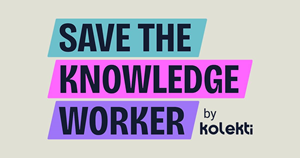The New Frontier of AI: Partnerships and Platforms Shaping the Future
October 10, 2024, 9:39 am
The world of artificial intelligence (AI) is evolving at breakneck speed. Companies are racing to harness its power, but the road is fraught with challenges. From optimizing performance to ensuring security, the landscape is complex. Two recent developments highlight this dynamic: RunPod's partnership with vLLM and Kolekti's launch of Narus. These initiatives aim to redefine how businesses approach AI, blending innovation with responsibility.
RunPod, a cloud computing powerhouse, has joined forces with vLLM, an open-source inference engine. This partnership is not just a handshake; it’s a strategic alliance aimed at pushing the boundaries of AI performance. RunPod is committed to enhancing AI infrastructure, and vLLM’s PagedAttention algorithm is the key. This algorithm is a game-changer, achieving near-optimal memory usage with minimal waste. It’s like finding a hidden treasure in a sea of data.
The collaboration is built on a foundation of shared goals. RunPod provides the computational muscle needed to test vLLM’s technology across various GPU models. This isn’t just about crunching numbers; it’s about fostering innovation. Regular meetings between AI engineers from both sides ensure that the partnership remains agile and responsive to the fast-paced AI landscape.
Meanwhile, Kolekti is tackling a different challenge. The company has unveiled Narus, a centralized AI chat platform designed to combat the rise of shadow AI. In a world where employees often turn to unregulated AI tools, Narus offers a secure environment for interaction. It’s a safety net for organizations grappling with the risks of AI integration.
Kolekti’s approach is refreshingly user-centric. Narus provides a flexible, pay-as-you-go pricing model, making AI accessible to businesses of all sizes. This is a stark contrast to traditional enterprise solutions that often come with hefty price tags and rigid structures. Narus empowers employees while ensuring that organizations maintain oversight. It’s a delicate balance, akin to walking a tightrope.
The need for such solutions is pressing. A recent report revealed that only 23% of organizations feel prepared for the challenges posed by generative AI. Meanwhile, a staggering 78% of knowledge workers use their own AI tools without informing their employers. This disconnect creates a breeding ground for data breaches and compliance violations. Narus aims to bridge this gap, fostering trust between employees and the tools they use.
Security is at the heart of Narus. The platform offers real-time monitoring of AI usage, safeguarding against potential threats. Administrators can set alerts for sensitive information inputs, ensuring compliance with regulations like GDPR. This proactive approach is essential in today’s data-driven world, where a single breach can have catastrophic consequences.
But Narus isn’t just about security; it’s also about enhancing productivity. The platform includes prompt optimization tools, allowing users to refine their inputs for better results. A shared prompt library encourages collaboration, enabling teams to learn from each other’s successes. This communal approach to AI fosters a culture of innovation, driving organizations forward.
As businesses navigate the complexities of generative AI, the success of initiatives like Narus and partnerships like RunPod and vLLM will depend on a solid foundation. Clear use cases, strong governance, and comprehensive training are essential. Narus supports these pillars, providing a structured pathway to maximize benefits while minimizing risks.
The partnership between RunPod and vLLM also exemplifies the importance of collaboration in the AI space. By combining their strengths, they are not only enhancing AI performance but also reinforcing their commitment to the open-source community. This is a vital aspect of the modern tech landscape, where innovation thrives on shared knowledge and resources.
In conclusion, the future of AI is being shaped by strategic partnerships and innovative platforms. RunPod and vLLM are setting new standards for performance and efficiency, while Kolekti’s Narus is paving the way for secure and responsible AI adoption. As organizations continue to grapple with the challenges of AI integration, these developments offer a glimpse into a future where technology and responsibility go hand in hand. The journey is just beginning, and the possibilities are limitless.
RunPod, a cloud computing powerhouse, has joined forces with vLLM, an open-source inference engine. This partnership is not just a handshake; it’s a strategic alliance aimed at pushing the boundaries of AI performance. RunPod is committed to enhancing AI infrastructure, and vLLM’s PagedAttention algorithm is the key. This algorithm is a game-changer, achieving near-optimal memory usage with minimal waste. It’s like finding a hidden treasure in a sea of data.
The collaboration is built on a foundation of shared goals. RunPod provides the computational muscle needed to test vLLM’s technology across various GPU models. This isn’t just about crunching numbers; it’s about fostering innovation. Regular meetings between AI engineers from both sides ensure that the partnership remains agile and responsive to the fast-paced AI landscape.
Meanwhile, Kolekti is tackling a different challenge. The company has unveiled Narus, a centralized AI chat platform designed to combat the rise of shadow AI. In a world where employees often turn to unregulated AI tools, Narus offers a secure environment for interaction. It’s a safety net for organizations grappling with the risks of AI integration.
Kolekti’s approach is refreshingly user-centric. Narus provides a flexible, pay-as-you-go pricing model, making AI accessible to businesses of all sizes. This is a stark contrast to traditional enterprise solutions that often come with hefty price tags and rigid structures. Narus empowers employees while ensuring that organizations maintain oversight. It’s a delicate balance, akin to walking a tightrope.
The need for such solutions is pressing. A recent report revealed that only 23% of organizations feel prepared for the challenges posed by generative AI. Meanwhile, a staggering 78% of knowledge workers use their own AI tools without informing their employers. This disconnect creates a breeding ground for data breaches and compliance violations. Narus aims to bridge this gap, fostering trust between employees and the tools they use.
Security is at the heart of Narus. The platform offers real-time monitoring of AI usage, safeguarding against potential threats. Administrators can set alerts for sensitive information inputs, ensuring compliance with regulations like GDPR. This proactive approach is essential in today’s data-driven world, where a single breach can have catastrophic consequences.
But Narus isn’t just about security; it’s also about enhancing productivity. The platform includes prompt optimization tools, allowing users to refine their inputs for better results. A shared prompt library encourages collaboration, enabling teams to learn from each other’s successes. This communal approach to AI fosters a culture of innovation, driving organizations forward.
As businesses navigate the complexities of generative AI, the success of initiatives like Narus and partnerships like RunPod and vLLM will depend on a solid foundation. Clear use cases, strong governance, and comprehensive training are essential. Narus supports these pillars, providing a structured pathway to maximize benefits while minimizing risks.
The partnership between RunPod and vLLM also exemplifies the importance of collaboration in the AI space. By combining their strengths, they are not only enhancing AI performance but also reinforcing their commitment to the open-source community. This is a vital aspect of the modern tech landscape, where innovation thrives on shared knowledge and resources.
In conclusion, the future of AI is being shaped by strategic partnerships and innovative platforms. RunPod and vLLM are setting new standards for performance and efficiency, while Kolekti’s Narus is paving the way for secure and responsible AI adoption. As organizations continue to grapple with the challenges of AI integration, these developments offer a glimpse into a future where technology and responsibility go hand in hand. The journey is just beginning, and the possibilities are limitless.

